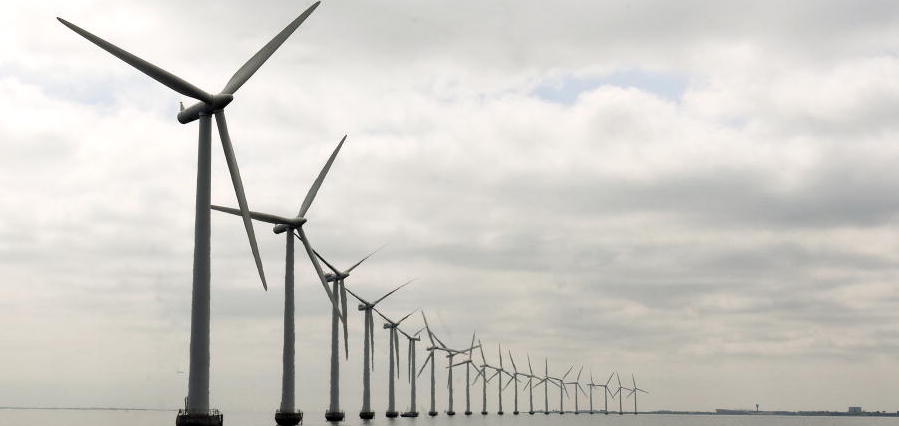
Local Government Pension Scheme pools are uniquely placed to address the finance sector’s failings on climate change, says Laura Chappell.
The case for urgent action on climate change is clear, with global average temperatures already 1°C above pre-industrial levels and rising.
Among other impacts, extreme weather events like the wildfires sweeping Australia are set to increase in frequency and intensity over the coming decades.
The finance sector has a key role to play in both mitigating and adapting to the climate challenge.
This includes allocating capital to develop solutions and pushing companies and policymakers towards more climate-friendly practices.
But it is not living up to this challenge. The rate at which capital is being invested in low carbon infrastructure is approximately half of that required and the pace at which regulators and policymakers are acting is far too slow.
The role of pension partnerships
Pension partnerships are in a unique position to do something about this.
Our clients retain responsibility for their asset allocation and investment strategy, and ultimately their exposure to climate risk.
But as large, pooled asset owners we have broad influence in the investment industry and with policymakers, and we have significant direct influence over the investment managers we appoint.
At Brunel, for example, we manage the investment of the pension assets (around £30bn) of ten Local Government Pension Scheme (LGPS) funds in the UK.
We have done a significant amount within our direct sphere of influence to address climate change.
For example we conduct carbon footprints of all our listed equity portfolios and allocate 35% of our infrastructure portfolio to renewable energy funds. But our ability to do more is constrained by the market.
State of play in the finance sector
In the course of procuring new asset managers, we recently engaged with 130 managers, reviewing 530 investment strategies and 32,000 tender pages in the process.
This has given us an insight into the state of climate action in the finance sector.
We find an emphasis on short-term rather than long-term performance, which drives short-term thinking by investors and companies.
In particular, the use of conventional market weighted benchmarks distorts incentives, as climate risk is not adequately priced by the market.
As a result, there is a shortage of investment products that make a substantive contribution to mitigation or adaptation.
Fixing a broken system
Given these structural issues, our role as pensions partnership must be to catalyse change at scale, not only through our own efforts but by partnering with others to reform the financial system.
This partnership approach starts with our clients.
Over the past year, we have engaged our clients at every level – from client groups and responsible investment sub-groups, to pensions committees and pensions boards – to identify their priorities.
Inspired by their ambition, and utilising the full pool of expertise across the Brunel Partnership, we have developed a group-wide climate change policy, which commits us to taking a leadership role in changing the financial services industry as a whole.
Challenging investment managers
We believe that to change the financial system it is essential to develop the capacity of investment managers to assess and integrate climate risk.
We will do this by challenging our managers to provide products that deliver on our investment and climate change objectives.
We will press them to think critically about the companies and other entities that they invest in, to justify their investments in companies with higher greenhouse gas emissions, and to engage constructively with those companies to put them on a path to alignment with a 2°Cor below economy.
Managers that cannot demonstrate reduced climate exposures and effective engagement will be replaced.
Facilitating the inevitable policy response
A second focus for us is policy advocacy. There are few signals that governments – at least those outside the EU – will act forcefully on climate change in the next two years.
But this situation is not sustainable.
Pressure for policy action will continue to increase and come from all angles – environmental, social, and economic, fuelled by fears over national security and enabled by advances in technology and upward pressure by electorates and businesses to act.
At the same time, the Paris Agreement’s ‘ratchet mechanism’ – starting with the Global Stocktake in 2023 and leading to the third round of climate pledges in 2025 – increases the likelihood that policy announcements to tackle climate change will accelerate within this period.
Our role is to smooth this transition to more concerted policy action by encouraging progressive and clear policy action.
By taking a proactive role through global collaborative initiatives such as
The Institutional Investors Group on Climate Change and Principles for Responsible Investment, we will encourage policymakers to adopt effective policies such as a meaningful price on carbon and the removal of fossil fuel subsidies.
Transparency and collaboration
Brunel cannot single-handedly overhaul the financial system.
That’s why our strategy focuses on using our leverage to influence those around us: clients, investment managers, and policymakers.
More broadly, we hope that other pension schemes will learn from our experience and develop their own, ambitious programmes of action on climate change.
That’s why we are committed to transparency and collaboration at every level.
We will support and pilot new methodologies for stress-testing portfolios under a range of climate scenarios.
We will report on the proportion of our portfolios invested in the low carbon transition and on how our portfolios align with the goals of the Paris Agreement.
And in 2022 we will conduct a full stocktake to reflect on our progress and ramp up our ambitions.
We invite others to join us on this journey.
At Brunel, we have benefited from pooling the expertise across our partnership.
If the local government finance sector can do the same, we can begin to harness the collective power of the asset management industry and make a meaningful contribution to climate change mitigation and adaptation.
Laura Chappell is chief executive officer at Brunel Pension Partnership.












